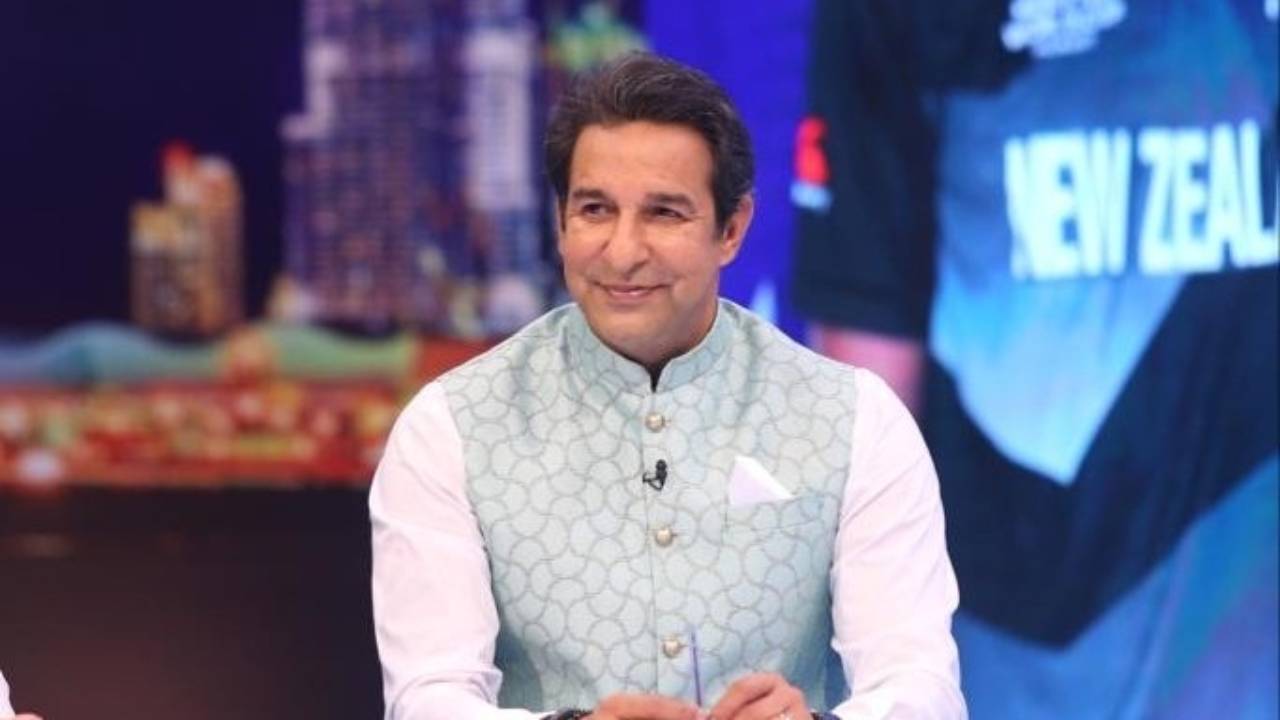Legendary Pakistani fast bowler Wasim Akram has recently opened up on his struggles with cocaine addiction he got into after ending his playing career, in his upcoming autobiography ‘Sultan: A Memoir’.
Akram, Pakistan’s leading wicket-taker in both Test and ODI, also made hair-raising accounts of his time in rehab in Pakistan where, he said, he was kept for “two and a half months against my will” when initially he’d gone there for a month.
The cocaine habit, he revealed, began after he retired in 2003 and took up coaching and commentary stints for which he had to travel around the world.

Wasim Akram spoke of his cocaine addiction in his new autobiography
Speaking in the recent episode of The Grade Cricketer, Wasim Akram talked about how his cocaine addiction began, and revealed his shocking experience at a rehab centre in Pakistan.
“In England, somebody at a party said ‘you wanna try it?’ I was retired, I said ‘yeah. Then one line became a gram. I came back to Pakistan. Nobody knew what it was but it was available. I realised, I couldn’t function without it, which means I couldn’t socialise without it. It got worse and worse. My kids were young. I was hurting my late wife a lot. We would have arguments. She said I need help,” Akram said.
“She said there’s a rehab, you can go there. I said alright I will go there for a month but they kept me there for two and a half months against my will. Apparently, that is illegal in the world but not in Pakistan. That didn’t help me. When I came out, a rebellion came into me. It’s my money, I stayed in that horrible place against my will.”
Extracts from his book have been published in The Times. In the book Wasim Akram, Pakistan’s 1992 World Cup final hero, talks about the conning work done at the rehab station he was admitted into.
“The doctor was a complete con man, who worked primarily on manipulating families rather than treating patients, on separating relatives from money rather than users from drugs,” Akram writes in his autobiography.
“Try as I might, part of me was still smouldering inside about the indignity of what I’d been put through. My pride was hurt, and the lure of my lifestyle remained. I briefly contemplated divorce. I settled for heading to the 2009 ICC Champions Trophy where, out from under Huma’s daily scrutiny, I started using again.”
Akram added that his addiction ended after the death of his first wife, Huma, in 2009.
“Huma’s last selfless, unconscious act was curing me of my drug problem. That way of life was over, and I have never looked back.”

